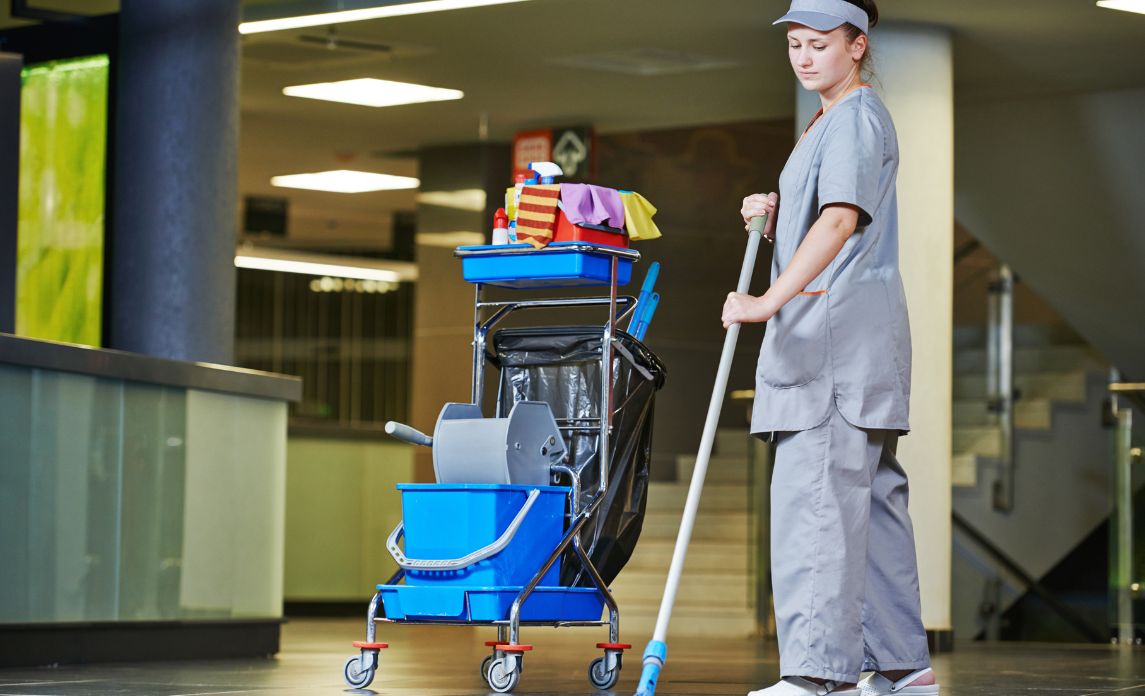If there’s one workplace that needs to be 100 per cent clean, it’s a healthcare facility. While every business benefits from regular cleaning, establishments such as hospitals, clinics, and diagnostic laboratories, among others, are places that safeguard your health. As such, they’re expected to be free from bacteria and other germs that can cause diseases.
Fortunately, there are professional medical cleaning companies like Crewcare that deliver top-notch cleaning services for healthcare facilities. Whether it’s a small private clinic or a large public hospital, commercial cleaners can ensure that every nook and cranny is hygienic and thoroughly disinfected.
Keeping a medical facility clean is also crucial to the overall health and safety of both patients and employees. Below are some key roles of medical cleaning in the well-being of everyone in the building, be they clients, visitors, or workers:
Controlling the Spread of Infections
People who come to hospitals or clinics are usually sick or suspect that they are sick. In some cases, it can be something as simple as the common cold; in others, it can be something more serious. Regardless of the severity of a person’s disease, there’s always the risk of spreading infections.
Some of the most common culprits of disease transmission include high-touch surfaces, such as countertops, stair rails, handrails, and elevator buttons. There are also plenty of bacteria and viruses that can spread through airborne droplets.
Through consistent and thorough cleaning, healthcare facilities can minimise everyone’s risk of catching an infection. This is particularly important for patients with weakened immune systems.
Preventing Cross-Contamination
In hospitals and clinics, medical instruments and devices are shared among patients. Some examples include surgical equipment, ultrasound probes, and even entire machines or furniture like CT scanners and examination tables. If not cleaned properly after use, these items can spread germs throughout the whole establishment.
Beyond cleaning them using appropriate methods, these medical instruments and devices should be disinfected after use. Certain items, like surgery tools, can be put in autoclaves to effectively kill bacteria and viruses. Otherwise, broad spectrum disinfectants can be used on a variety of materials.
Complying With Labour Laws
In New Zealand, employers and business owners are required by the Health and Safety at Work Act 2015 to provide the “highest level of protection from workplace health and safety risks.” One way to comply with this law is by ensuring the cleanliness of the premises, as well as any and all items that come into contact with employees.
Aside from the obvious—which is to say, the prevention of the spread of disease—clean surroundings can also promote good mental health. When one is fairly confident that they can’t pick up infections from their workplace, they can fulfil their tasks with more peace of mind.
As a bonus, being conscientious about cleanliness in healthcare facilities can also save the management from the trouble of legal issues and other penalties (monetary or otherwise) due to non-compliance.
Promoting the Well-Being of Patients and Employees
When a patient goes to a hospital or medical centre, they expect their health concerns to be addressed. A poorly maintained facility works in direct contrast with the primary purpose of healthcare establishments. Instead of getting cured, patients may even pick up more illnesses. On the other hand, a clean and hygienic space can promote healing and wellness.
It’s also important to factor in the health and safety of a hospital’s employees. They are often in close contact with sick patients, not to mention exposed to hazardous materials or environments. By investing in medical cleaning services, you can ensure that your staff stays in the pink of health and is able to provide quality healthcare.
As a manager or business owner, it’s also important to consider employee productivity, efficiency, and job satisfaction. All of these things are affected by the condition of the workplace. Thus, by hiring professional cleaners, your entire medical staff can focus on their duties and do their jobs well.
Creating a Positive Impression
In the healthcare industry, having skilled medical professionals working in your establishment is not the only thing that matters. It’s also crucial to embody professionalism and genuine care for your clients. If your healthcare facility is unhygienic, patients will feel unsafe and would likely seek treatment elsewhere.
It’s thus important to note that a hospital or clinic isn’t composed only of patient rooms, operating theatres, and the like. There are also other spaces that you need to keep clean and disinfected, such as waiting areas, cafeterias, bathrooms, reception desks, and the like.
The bottom line here is that cleanliness goes beyond aesthetics, health, and safety. It also communicates that you are running a professional organisation that puts a premium on customer well-being and satisfaction.
Ultimately, a clean hospital or clinic paints a picture of good health. For a medical institution, this is the bare minimum expectation. Thus, it’s in your best interest to invest in professional cleaning services to keep your facility clean, organised, and disinfected at all times.


